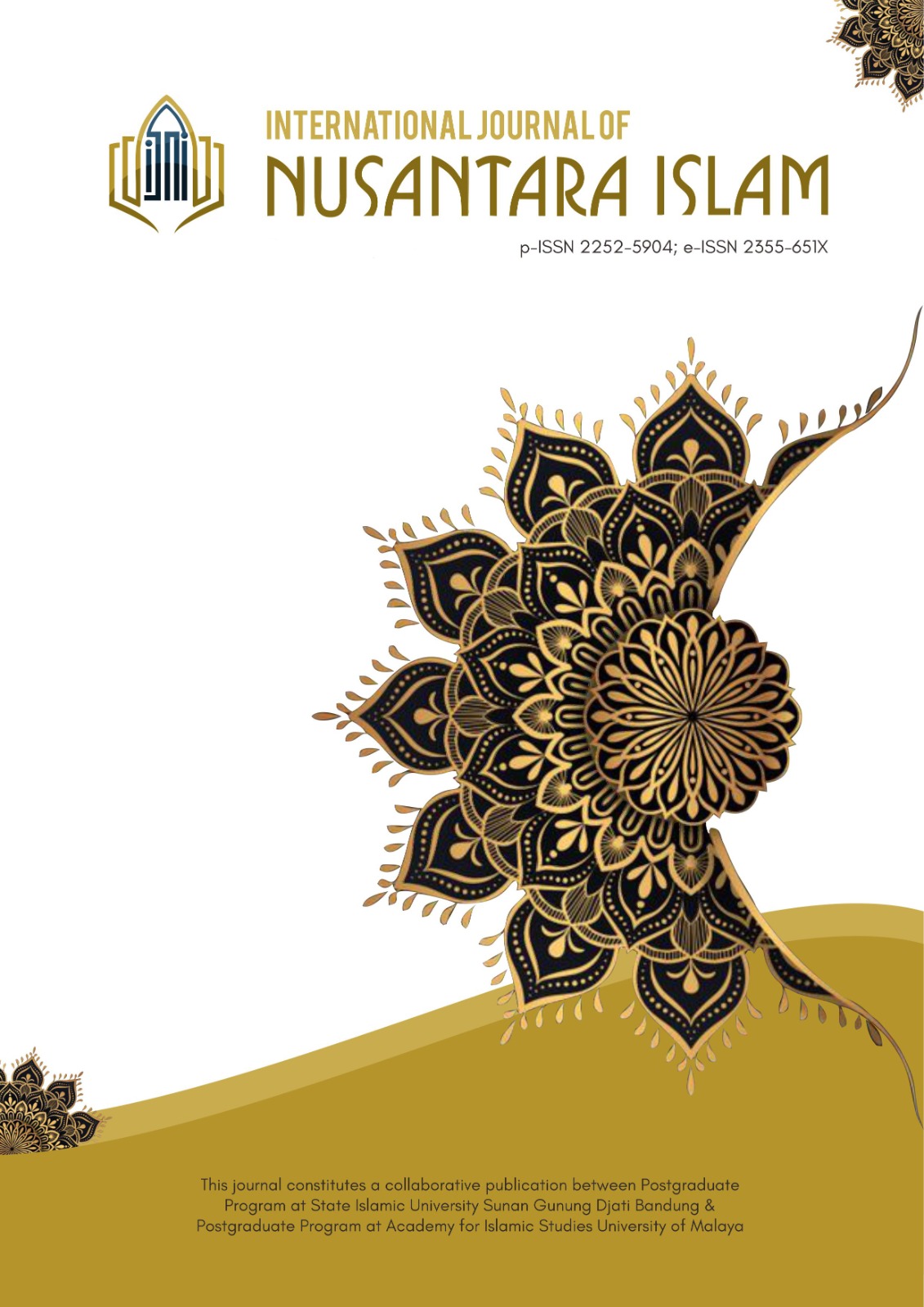Completion of Legal Conflicts in The Implementation of The Decision of the National Sharia Arbitration Board
Main Article Content
Abstract
The background of the article is the contents of Article 59 paragraph (3) and explanation of paragraph (1) of the Law on Judicial Power. The article authorizes the District Court to implement the decision of the Sharia arbitration body on the resolution of Islamic economic disputes. The article and explanation of the verse contradicts the absolute authority of the Religious Courts regulated in Article 49 letter (i) of the Law on Religious Courts. This shows that, the legislators are not consistent in making laws and regulations, so that it creates legal uncertainty. By applying the normative legal research method to the statute approach and case approach, this article seeks to describe the phenomenon of legal conflicts that occur. From the in-depth analysis it can be concluded that the legal provisions regarding the implementation of the decision of the National Sharia Arbitration Board are regulated in the Arbitration Law, the Judicial Power Act and the Religious Courts Act. The legal substance of the provisions therein enables antinomy or legal conflicts. Antinomy settlement can use the principle of lex specialis derogat legi generali
Article Details
The Authors submitting a manuscript do so on the understanding that if accepted for publication, copyright of the article shall be assigned to International Journal of Nusantara Islam, Sunan Gunung Djati State Islamic University.
The copyright encompasses exclusive rights to reproduce and disseminate articles in all forms and media, including reprints, photographs, microfilm, and similar reproductions, as well as translations. Some or all of the contents of this journal can be stored in databases and transmitted in any form and media without the need for written permission from the International Journal of Nusantara Islam, Sunan Gunung Djati State Islamic University.
The Editors and the Advisory International Editorial Board make every effort to ensure that no wrong or misleading data, opinions or statements be published in the journal. In any way, the contents of the articles and advertisements published in the International Journal of Nusantara Islam (IJNI) are sole and exclusive responsibility of their respective authors and advertisers.
References
Dotulong, S. (2018). Analisis Yuridis Keputusan Tata Usaha Negara yang Dikeluarkan Tanpa Wewenang sebagai Objek Gugatan di Pengadilan Tata Usaha Negara. Jurnal Lex Administratum, VI(4).
Fathurrahman Djamil. (2006). Prinsip-prinsip Ekonomi Islam. Dalam Kapita Perbankan Syariah Atas UUNo. 7 tahun 1989 (Perluasan Wewenang Peradilan Agama). Mahkamah Agung RI.
Friska Muthi Wulandari. (2017). Dualisme Peraturan tentang Kewenangan Pengadilan Terhadap Eksekusi Putusan Badan Arbitrase Syariah Nasional. Tesis Pada Program Studi Hukum Islam UIN Sunan Kalijaga Yogyakarta.
Ivan S, R. (2016). Tinjauan Yuridis tentang Peranan Identitas Domisili dalam Menentukan Kompetensi Relatif Pengadilan. Jurnal Lex Privatum, IV(1).
Jamaludin. (2019). Penyelesaian Sengketa Wakaf Melalui Basyarnas. Jurnal Misykat al-Anwar, 30(1).
Manan, A. (2017). Hukum Ekonomi Syariah: Dalam Perspektif Kewenangan Peradilan Agama. Prenada Media.
Mochtar, Z. A. (2015). Antinomi dalam Peraturan Perundang-undangan di Indonesia. Hasanuddin Law Review, 1(3), 316–336. https://doi.org/10.20956/halrev.v1i3.112
Novianto M. Hantoro. (2012). Sinkronisasi dan Harmonisasi Hukum Penyelenggaraan Otonomi Daerah: Studi di Provinsi Bali. P3DI Setjen DPR Republik Indonesia dan Azza Grafika.
Nuraisyah. (2018). Peranan Hakim Pengadilan Agama dalam Penerapan Hukum Islam di Indonesia. Jurnal Al-Qada’, 5(1).
Soekanto, S. (1983). Faktor-faktor yang mempengaruhi penegakan hukum. Rajawali.
Soekanto, S. (2006). Pengantar penelitian hukum. Penerbit Universitas Indonesia (UI-Press).
Soekanto, S., & Mamudji, S. (1985). Penelitian hukum normatif: Suatu tinjauan singkat. Rajawali.
Soerjono Soekanto. (1993). Penegakan Hukum. Bina Cipta.
Sudjana. (2018). Efektivitas dan Efisiensi Penyelesaian Sengketa Kekayaan Intelektual melalui Arbitrase dan Mediasi Berdasarkan Undang-Undang Nomor 30 Tahun 1999. Jurnal Ajudikasi, 2(1).
Taqiudin, H. U. (2017). Penalaran Hukum (Legal Reasoning) dalam Putusan Hakim. Jurnal Ilmu Sosial dan Pendidikan, I(2).
Wahyu Widiana. (2007). Kumpulan Makalah Ekonomi Syariah. Mahkamah Agung RI Direktorat Jenderal Badan Peradilan Agama.
Wahyudi, A. T. (2016). Kewenangan Absolut Peradilan Agama Di Indonesia Pada Masa Kolonial Belanda Hingga Masa Pasca ReformasI. Jurnal Yudisia, VII(2).
Zulhefni, M. (2017). Kendala Penyelesaian Sengketa Perbankan Syariah melalui Pengadilan Agama Kota Malang. Jurnal Jurisdictie, 8(2).

